Honda's First Full-Scale U.S. Wind Tunnel Opens in Ohio
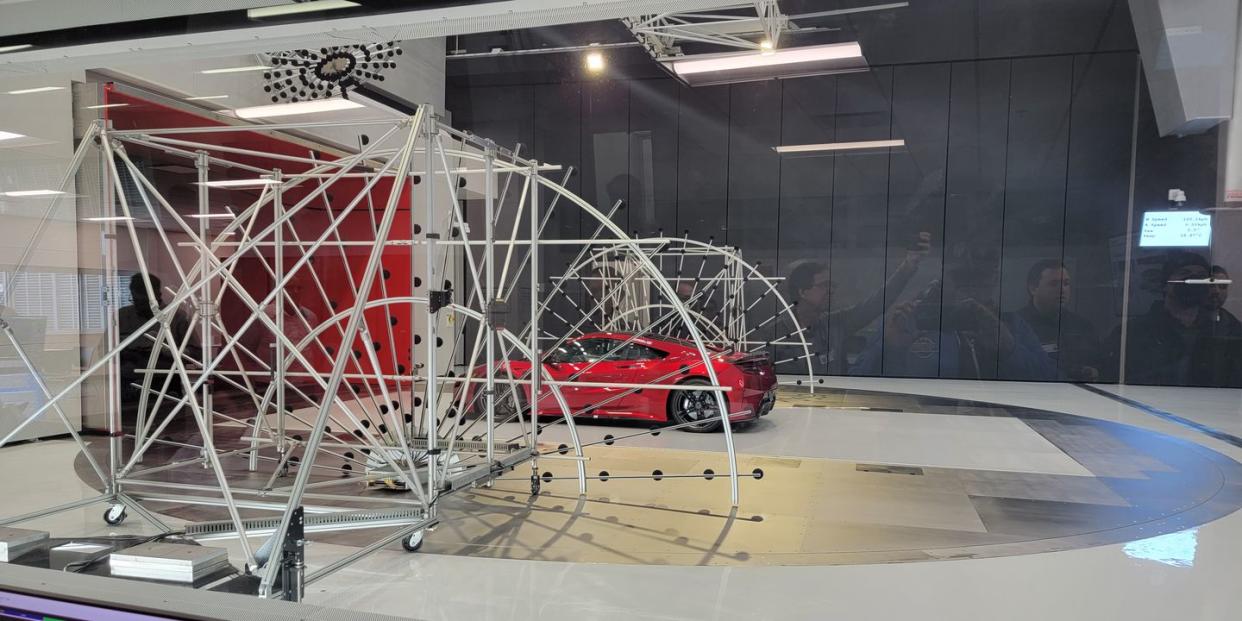
Honda's first full-size wind tunnel in the U.S. has a 26-foot fan that enables aerodynamic work at up to 193 miles per hour on road and race cars, while an array of 556 microphones enables aeroacoustic work.
It's called HALO (Honda Advanced Laboratories of Ohio) and it's set among the automaker's existing R&D facilities and manufacturing plants in East Liberty, Ohio.
The five-year, $124 million project will greatly improve vehicle development efficiency, Honda says. It will be fully operational later this summer and available for third parties to rent toward the end of 2023.
High Altitude Low Opening and Helping Animals Live On have a new contender among the acronyms for HALO. We just visited Honda's just-completed a $124 million wind tunnel dubbed Honda Advanced Laboratories of Ohio, in East Liberty, Ohio. Set among Honda's vehicle development facilities and manufacturing plants, it's an investment the automaker expects to keep on giving to the benefit of its customers, engineers, and race teams.
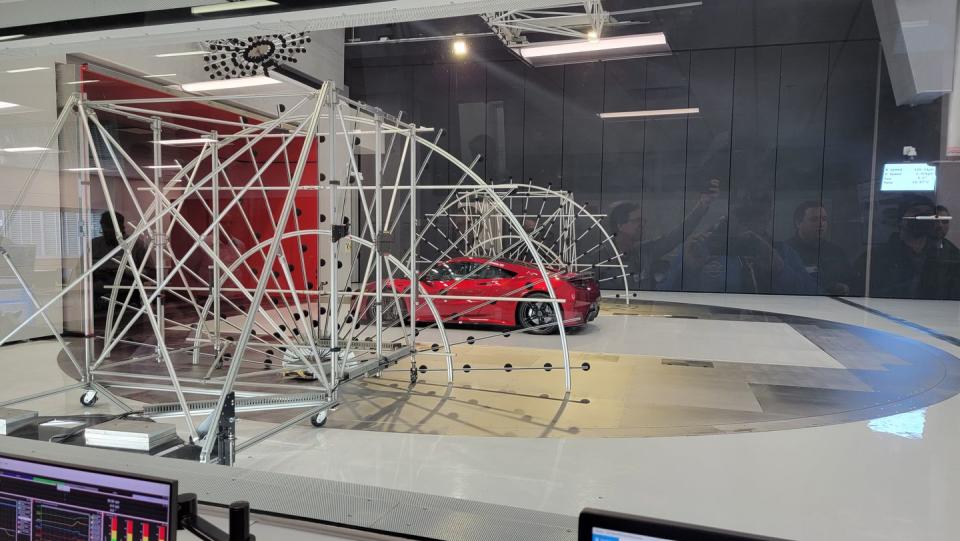
The automaker has three full-scale wind tunnels in Japan, but the U.S. operations have been limited to a smaller tunnel that maxes out at 40 percent scale. Mike Unger, the HALO facility lead engineer with 29 years at Honda, said the smaller tunnel is "mainly about solidifying styling and the scale." But there are limitations at 40 percent scale, "especially under body bits," Unger said, "because we can't scale the air. To get that last little bit, you've got to have full-scale."
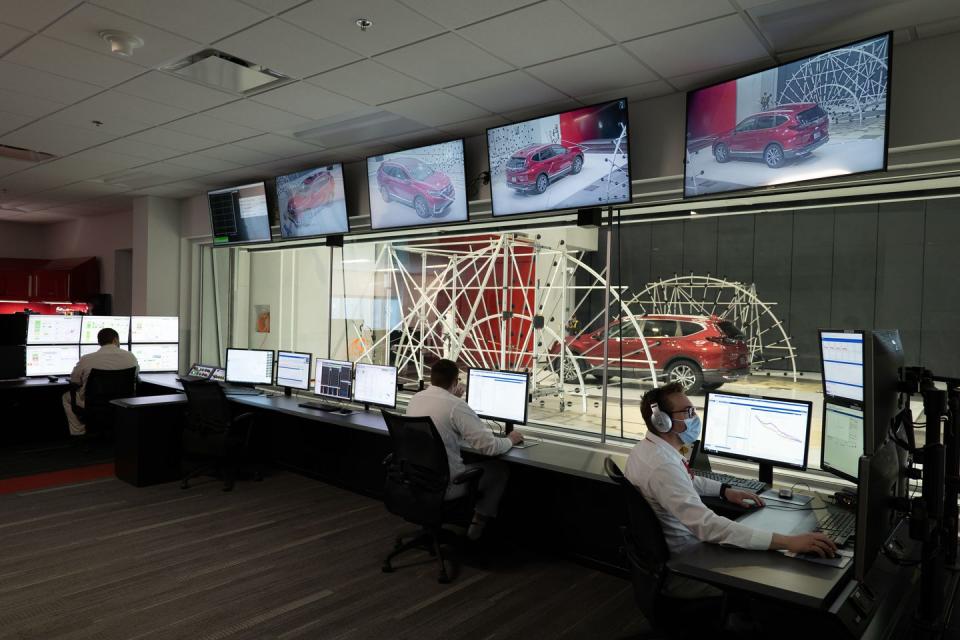
Ever stricter fuel-economy regulations demand that last little bit, so Honda has sent expensive prototypes and engineers all over the world to full-scale tunnels. Having a pricey prototype sitting on a ship for weeks or months wasn't the best use of resources, and the strain on engineers was untenable. "We had a lot of people traveling all over the world," Unger said. "A lot of hotel rooms."
HALO gives the domestic teams the ability to do more work more efficiently and find more opportunities for collaboration.
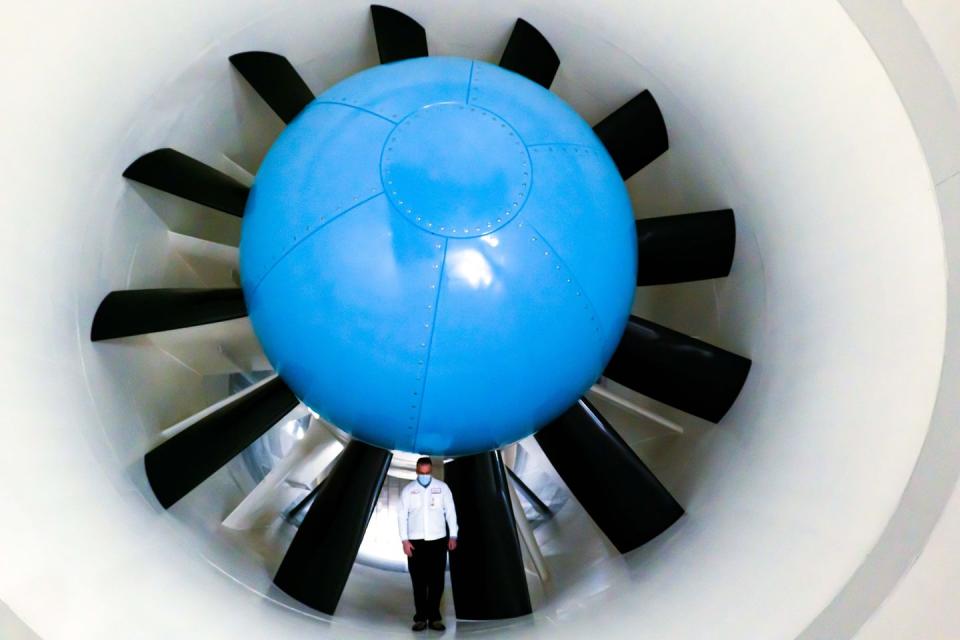
Honda says HALO's range of capability is unmatched. The 26.2-foot fan can send gusts around the 1/8-mile wind tunnel circuit at up to 192.6 miles per hour. A modular rolling road system fits either a five-belt road for upper body aerodynamic work, or a single, wide-belt rolling road best for downforce work on high performance and race cars. The turntable holding the road can flip through 180 degrees. The operator's station can gather 127 aerodynamic and aeroacoustic data channels. An array of 502 external microphones and 54 in-car microphones measure where wind noise is created and perceived outside and inside the vehicle.
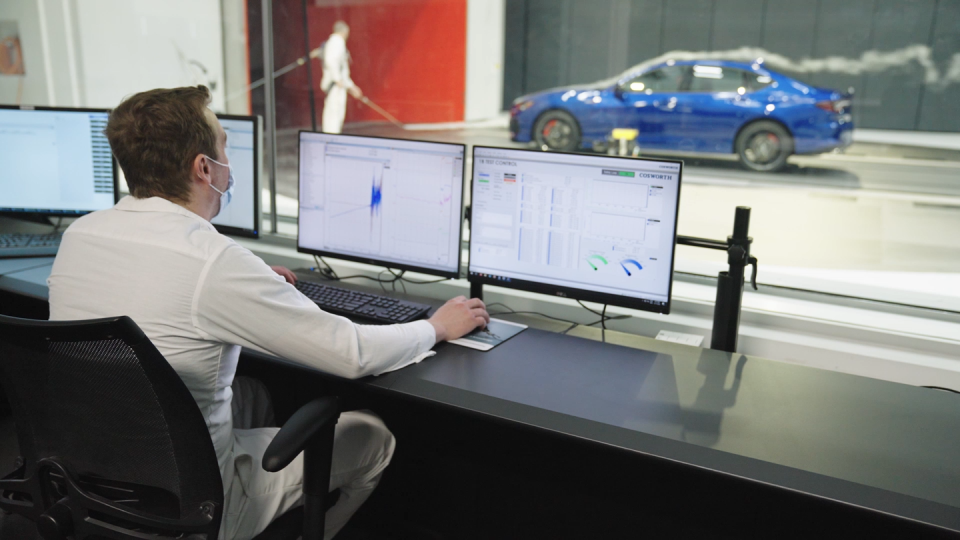
A heat exchanger filled with 16,000 gallons of glycol and water can vary wind temperature from 50 degrees to 122 degrees Fahrenheit. An 80-ton overhead arm can hold a probe to within a millimeter of its desired placement at the top shear speed of 193 mph.
And it's so quiet inside the test center that at a wind speed of 87 miles per hour, the noise level outside the airflow measures 56.5 dBA—which is less noisy than normal conversation. And that's merely the beginning of the feature set.
By serving the diverse needs of engineers at Honda, Acura, and the Honda Performance Development racing division, HALO puts a massive breadth of knowledge in one place. Furthermore, once HALO has finalized its process and is running smoothly, Honda will make the facility available to rent to any third party; HALO was built with corporate variety and corporate secrecy in mind, and a third-party contractor will run the tunnel for any renter that doesn't want Honda involved.
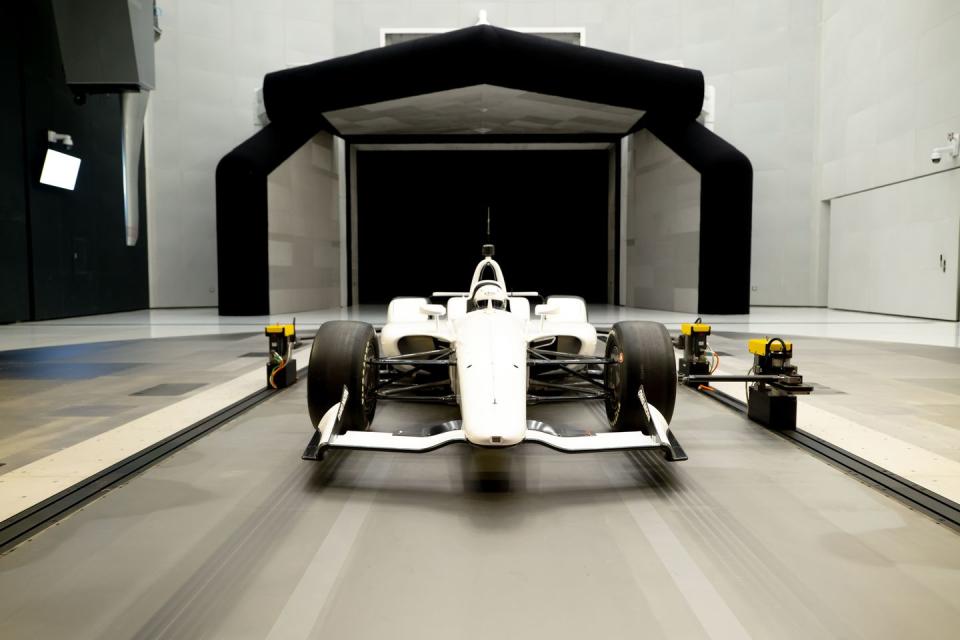
There could be a Civic, an MDX, an IndyCar racer, a drone, and an architectural model bolted to the test bed in a single week. This makes HALO a living library of engineering, offering a potential exchange of information never available to the U.S. operations before. On top of improving development efficiency and vehicle testers to spend more time at home, this is where Unger really sees dividends, especially as the automaker dives into electric vehicles.
“What we're going to do in the future, with people and processes, that's going to be the magic.”
You Might Also Like

